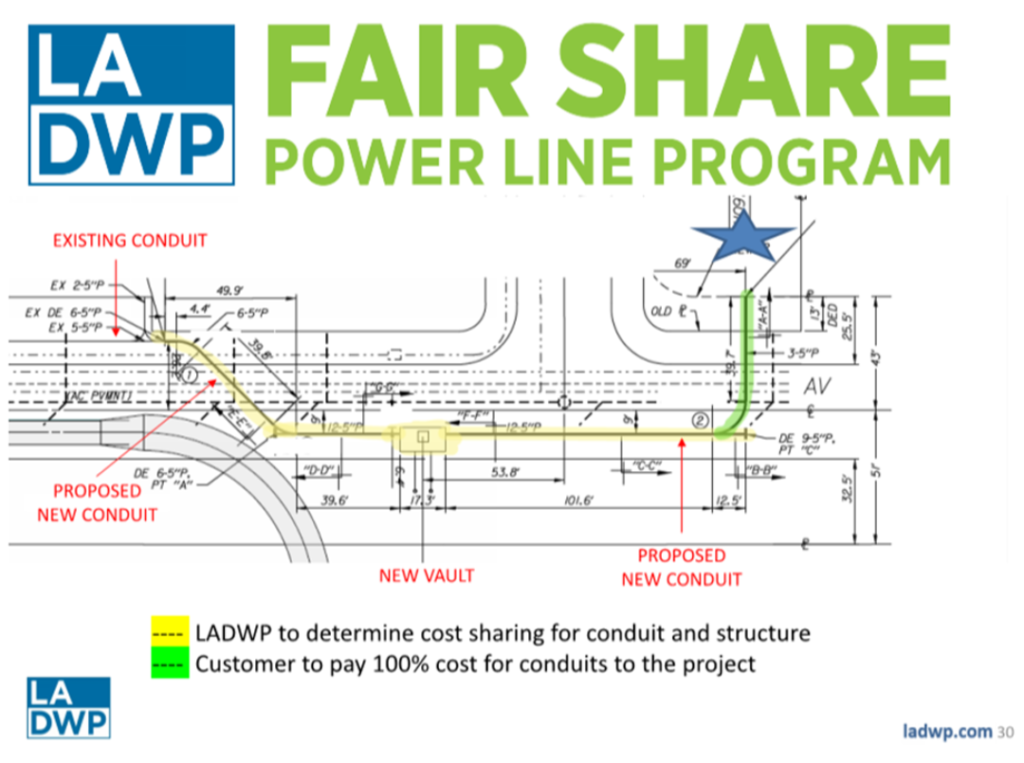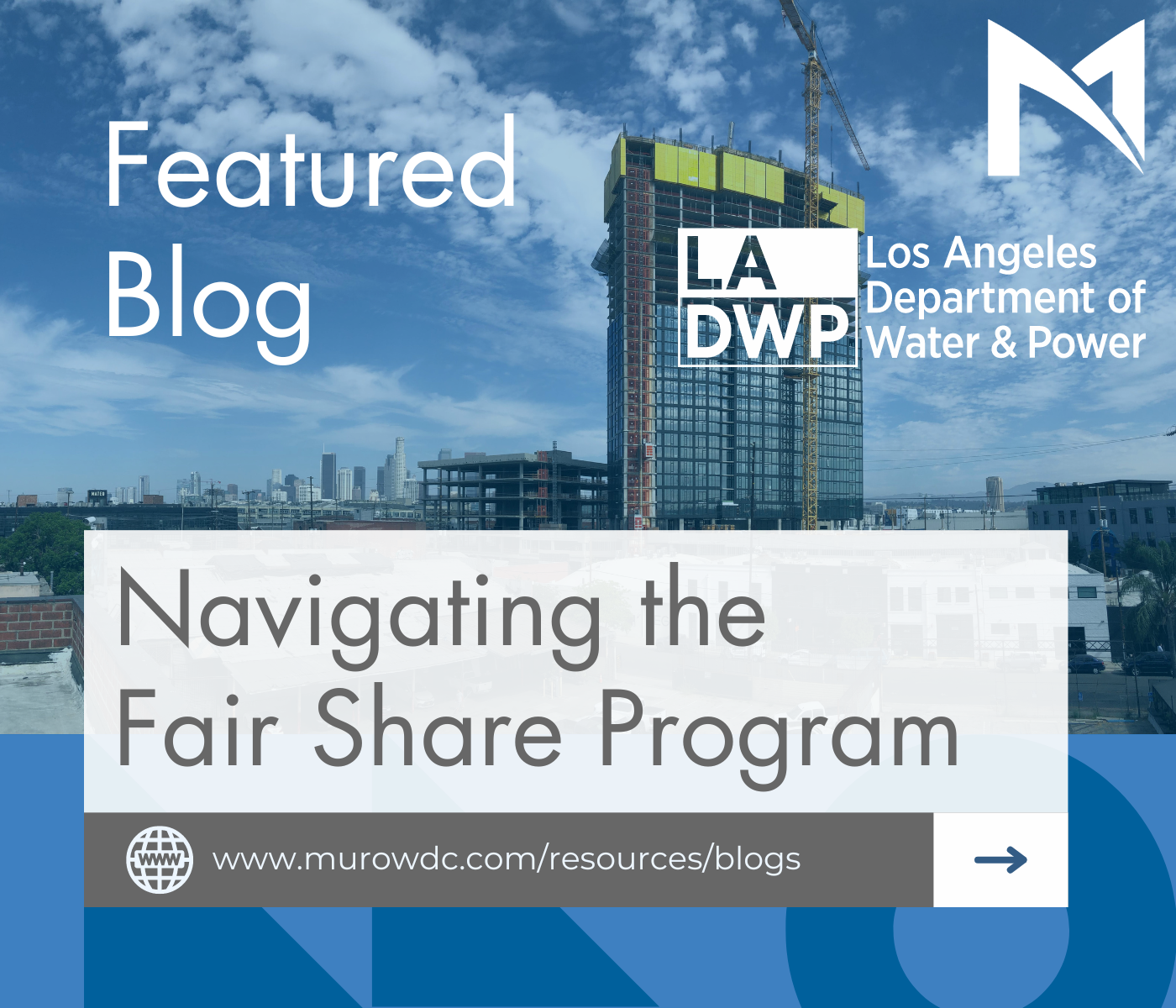When undertaking a development project within the Los Angeles Department of Water and Power (LADWP) service territory, developers often encounter a critical aspect of electrical infrastructure: line extensions. These extensions involve expanding underground distribution facilities in public property, typically when a project is more than 300 feet away from existing infrastructure or requires substantial power levels, such as 4.8kV or 34.5kV. Historically, such requirements posed significant financial burdens on developers. However, LADWP’s Fair Share Program is set to change the landscape by introducing a more equitable cost-sharing system.
Understanding Line Extensions and the Traditional Challenges
Line extensions are necessary when a new development requires a power distribution network expansion, particularly when nearby circuits can’t meet the project’s power needs. Traditionally, developers were responsible for covering the full cost of these extensions, including trenching, conduit installation, structures, labor, and permit fees. These expenses could easily run into millions of dollars, especially for large-scale projects, creating significant financial challenges.
The old system also led to inequities and strategic delays. For example, “Project A” might initiate a $1.2 million line extension, only for a neighboring development, “Project B,” to wait until the work was completed and then connect to the new infrastructure at a fraction of the cost. This discouraged the first developer from making the necessary infrastructure investment and created a potential stalemate, where neither project moved forward due to the high initial costs.
Introducing the Fair Share Program
To address these issues, LADWP developed the Fair Share Program, a novel approach that distributes the financial burden of line extensions more equitably among current and future developers. Under this program, the cost of a line extension is treated as a shared responsibility. Instead of a single developer shouldering the entire expense, LADWP allocates the cost among all developers who benefit from the new infrastructure.
If a project qualifies for the Fair Share Program, the initial developer is required to pay only a percentage of the line extension cost, referred to as their “fair share.” LADWP covers the remaining costs, either directly or by charging future developers who connect to the extended infrastructure. As other projects come online, they reimburse LADWP for their share of the costs, ensuring that the initial investment is eventually recovered.
Cost Sharing, Implementation, and Developer Options
As of August 2024, LADWP is finalizing how these costs will be split, likely dividing them among three to six developers. The exact share each developer pays will be significantly lower than the previous 100% burden. However, the first developer will still cover the full cost of connecting their site to the nearest new structure. While costs related to trenching, structures, cabling, and labor will be reduced, permit and street restoration fees remain unchanged.
Developers participating in the Fair Share Program have the option to either have LADWP construct all necessary facilities in the street or hire a licensed contractor with an “A” license. If a contractor is hired, there is a process in place for developers to be reimbursed by LADWP for any work that exceeds what was required for their specific project.
Qualifying for the Fair Share Program
Not all projects automatically qualify for the Fair Share Program. LADWP must first determine that a line extension will benefit other current and future developments, a decision typically made early in the planning stages with input from the project’s engineer.
Conclusion: A New Era of Equitable Development
The Fair Share Program marks a significant shift in LADWP’s approach, promoting fairness and reducing the financial burden on individual developers. By fostering collaboration and cost-sharing, LADWP aims to streamline the development process, making infrastructure improvements more manageable. For Los Angeles developers, this program could be a game-changer, making new projects more financially feasible in a city where every development counts.
For further assistance and navigation, please contact Chris Rad, Director of Dry Utilities, at (714) 900-5500 or [email protected].
Sources:


